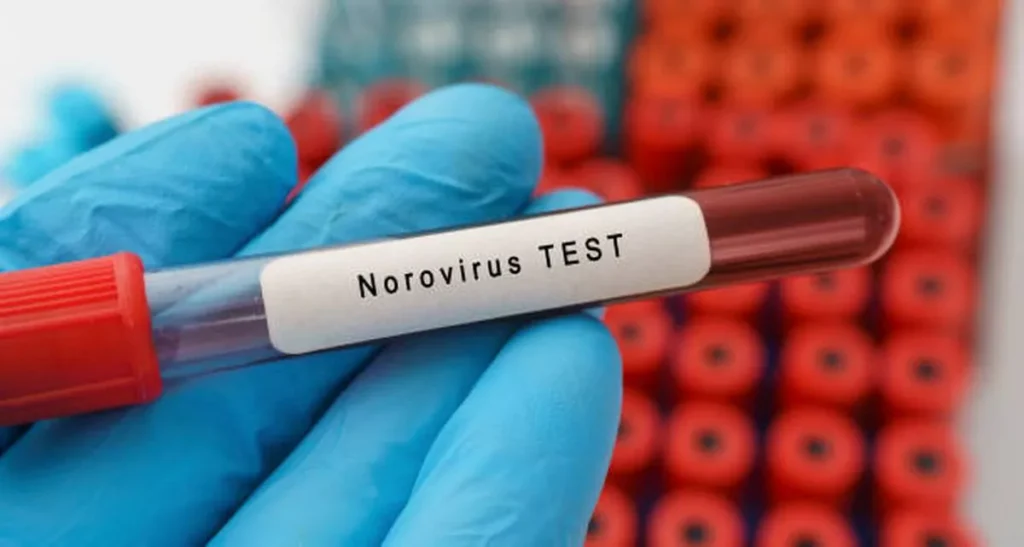How long does norovirus last in adults? Norovirus is a highly contagious virus that causes gastroenteritis, leading to symptoms such as vomiting, diarrhea, stomach cramps, and nausea.
In adults, the illness typically lasts between 1 to 3 days, with most people recovering without the need for medical treatment. However, certain factors can influence the duration and severity of the infection.
According to the Centers for Disease Control and Prevention, norovirus is responsible for approximately 685 million cases of acute gastroenteritis annually, with about 200 million cases occurring in children under five years old.
The virus leads to an estimated 50,000 child deaths each year, primarily in developing countries. In adults, norovirus is a leading cause of foodborne illness, with outbreaks commonly occurring in settings such as nursing homes, schools, and cruise ships.
Norovirus Symptoms and Duration
A 2010 research review showed that, after exposure, symptoms of norovirus typically appear within 12 to 48 hours. In adults, common symptoms include:
- Nausea and vomiting
- Diarrhea
- Stomach cramps
- Low-grade fever
- Headache
- Muscle aches
These symptoms usually resolve within 1 to 3 days. However, some people, particularly older adults or those with weakened immune systems, may experience symptoms for a longer duration.
Learn more about how important CoQ10 is to heart health here.
How long does norovirus last in adults?
According to the Current Geriatrics Reports, people infected with norovirus are most contagious from the moment they begin feeling ill to at least 3 days after recovery.
Some people may be contagious for as long as 2 weeks after recovery. This prolonged contagious period contributes to the rapid spread of the virus in communal settings.
Learn more about whether it is healthy to sleep during the day and be awake at night here.
Prevention Tips
To reduce the risk of contracting or spreading norovirus, consider the following preventive measures:
- Wash Hands Thoroughly: Wash hands with soap and water for at least 20 seconds, especially after using the bathroom and before eating or preparing food.
- Disinfect Surfaces: Clean and disinfect contaminated surfaces, especially in shared spaces.
- Avoid Contaminated Food: Do not consume raw or undercooked shellfish, as they can be contaminated with norovirus.
- Stay Home When Sick: Avoid preparing food or caring for others when you are sick.
Learn more about the health benefits of cane sugar here.
When to Seek Medical Attention
Most adults recover from norovirus without medical intervention. However, seek medical attention if you experience:
- Signs of dehydration such as decreased urination, dry mouth and throat, dizziness, or lightheadedness.
- Symptoms that persist longer than 3 days.
- Severe abdominal pain or a high fever.
Learn more about eggshell health benefits here.
What to Expect at the Doctor’s Office
At the doctor’s office, the healthcare provider will:
- Review your symptoms and medical history.
- Conduct a physical examination.
- Recommend tests, if necessary, to rule out other conditions.
- Advise on hydration and may prescribe oral rehydration solutions.
Learn more about the best ways to reduce unhealthy fats in my diet here.
Treatment and Recovery
There is no specific antiviral treatment for norovirus. Management focuses on supportive care, including:
- Hydration: Drink plenty of fluids to replace lost fluids from vomiting and diarrhea.
- Rest: Adequate rest helps the body recover.
- Diet: Gradually reintroduce bland foods as tolerated.
Most individuals recover within 1 to 3 days without complications.
Learn more about how cell phones affect our health here.
A Word from GetMe Treated
Understanding how long norovirus lasts in adults and the associated risks can help in managing the illness effectively.
By adhering to preventive measures and seeking medical attention, when necessary, people can reduce the impact of norovirus infections.
Remember, maintaining good hygiene practices and staying informed about the virus are key steps in protecting yourself and others from norovirus.
Learn more about the 12 health benefits of cloves and milk tea here.
FAQs About How Long Does Norovirus Last in Adults
Can you get norovirus more than once?
Yes, immunity to norovirus is strain-specific and temporary, so reinfection is possible.
Is there a vaccine for norovirus?
Currently, no vaccine is available for norovirus.
How is norovirus transmitted?
Norovirus spreads through contaminated food, water, surfaces, and close contact with infected individuals.
Can norovirus be treated with antibiotics?
No, antibiotics are ineffective against viral infections like norovirus.
How can I prevent norovirus infection?
Practice good hygiene, wash hands regularly, disinfect surfaces, and avoid consuming contaminated food.
Is norovirus dangerous for adults?
For healthy adults, norovirus is typically not dangerous. However, it can lead to dehydration, especially in older adults or those with underlying health conditions.

